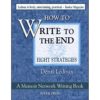In this Strategies for Successful Writing category, you will read about processes and props you can implement to increase your success as a memoir writer.
While it would be comforting to think that “wanting to succeed” would be sufficient for success, it simply is not. Nor are best efforts, enthusiasm, and working hard.
You must master the craft—that is, the craft of memoir writing. Success for a memoirist is indexed both on the writer’s experience of best writing practices and ability to access feelings deep inside as well as on the reader’s experience. (The reader after all has to bring much to the story experience.) You don’t however have much control of the reader’s response, but you do of your writing.
Best Practices of Strategies for Successful Writing
As in all professions and trades, there are “best practices” for memoir writing that facilitate and improve your writing experience and your audience’s reading experience.
While no one would contradict that memoir writing is an art and requires intuition and sensibility, it is also a craft that relies on best practices of successful memoir writing.
In conclusion
The posts below will help you to write better narratives. But, don’t stop there. Read your way through the entire Memoir Writer’s Bog. Be sure to read How to write a memoir: our 21 Best Memoir-Writing Tips to get you writing your memoir—quickly and well—and getting it into the hands of your public.
As one of the most fundamental strategies for successful writing, let’s be sure to emphasize that when writers do not complete their memoir, they cannot be called successful. So…keep writing until you finish.
Good luck with your writing.

Instead of A Writing Prompt – Five Tips for Creating a Memory List
As people are writing a memoir they will sometimes say, “I want to write my stories but I have forgotten so many details. Is there any way I can get them back? Should I use writing prompts or is there something instead of a writing prompt?”
There is one tool above all others that makes the experience of life writing successful. That tool is not a writing prompt: it is the Memory List. No other exercise opens up the process of life writing as quickly and as surely as the thoughtful and thorough compilation of such a list. It’s simple, and as a first step, it’s crucial.
Let me tell you about the Memory List (a general term for your list of memories).
Your Memory List is always a work in process because the more you remember and jot down, the more you’ll recall. You will return to and rework your list again and again as you write your life stories. In short, it will serve as an excellent writing prompt without being a writing prompt.
1. The Memory List consists of short memory notes (three to five words is sufficient) of people, events, relationships, thoughts, feelings, things—anything—from your past.
[Free Membership required to read more. See below. ]
We'd love to have you access this content. It's in our members-only area, but you're in luck: becoming a member is easy and it's free.
Already a Member?
Not a Member Yet?

Use This Instead of a Writing Prompt
A writing prompt in my estimation leads to nothing. I’m not a great fan of a writing prompt. Sure, they get you to writing something. And many people will insist writing something is better than writing nothing. Well, I’m not so sure of that.

Writing a Non-Fiction Book
Writing a non-fiction book is possible!
A common lament, I hear from writers goes like this, “I wanted a book, and I got off to a good start writing a memoir. I’ve always wanted to write a book, but then I just stopped. I don’t know why.”
What I have sometimes found is that people approach memoir-writing as an easy access to becoming “an author.”
“It’s my life after all,” people say. “I ought to know enough about myself to write a memoir without too much of a problem.”
Well, yes and no. It’s clearly your life, but feeling your way through it deeply enough to write about it with any insight, is not a sure thing.
“My own book”—the words convey an excitement and an importance that can be satisfying. And the memoir seemed an entrance, but the fact is that some people may not have the sensibility to write a memoir or may not be ready in their experience of their lives to undertake the project.
A special phrase–“My own book”
[Free Membership required to read more. See below. ]
We'd love to have you access this content. It's in our members-only area, but you're in luck: becoming a member is easy and it's free.
Already a Member?
Not a Member Yet?

The Work of Writing a Memoir Can Be Hard: Do it!
No one said it would be easy to do the work of writing a memoir!
“Writing is hard,” you realize again as you look at your production for the day. “Perhaps I’m not cut out for this work of writing a memoir.”
To your dismay, you have been writing in snippets for many days now. In the mornings, when you show up at your laptop—later and later it seems, you must face, as does every writer, a demanding master: your daily writing. Why can’t writing be more fun? Why can’t it be—well, to tell the truth—less hard?
Oh, how you wish it were the end of your scheduled writing period for the day! Why did you think you could do this book-writing thing!
“Whom am I kidding?” [Free Membership required to read more. See below. ]
We'd love to have you access this content. It's in our members-only area, but you're in luck: becoming a member is easy and it's free.
Already a Member?
Not a Member Yet?

Do not waffle in telling the truth
“I have permission [as a memoir writer] not to waffle in my writing,” I was recently informed by a memoir writer.
“Not to waffle” somehow missed the point for me.
Certainly, the memoir writer has permission “not to waffle,” but there is more that is incumbent on the writer. S/he has the obligation not to waffle. As memoir writers, “not to waffle” means to tell our truth about what happened. This is a must. Over the years, I have been amazed at how I can pick up waffling and how, in a workshop setting, others can too. Waffling just comes across waving a “red flag.” So…
Yeah, don’t do it!
But beyond “not to waffle” is telling the truth, the searing truth.
[Free Membership required to read more. See below. ]
We'd love to have you access this content. It's in our members-only area, but you're in luck: becoming a member is easy and it's free.
Already a Member?
Not a Member Yet?

How Long Should It Take to Write a Memoir? Set a Deadline!
How Useful Is A Memoir Timeline?
Have you ever wondered, “How long should it take to write a memoir?”
One answer, of course, is that it takes as long as it takes. While so true, this answer is not useful to those writers who are trying to get their duckies in line—looking at where the time is in their schedules to write, knowing what support to ask from their life partners, etc.
I’ve come up with a calculation for those people who want some sense of how long writing a memoir might take. The following time frame is realistic for any writer who needs a timeline to complete a 200-page memoir. [Free Membership required to read more. See below. ]
We'd love to have you access this content. It's in our members-only area, but you're in luck: becoming a member is easy and it's free.
Already a Member?
Not a Member Yet?

Don’t Wait: Continue to Write Your Memoir Today
Why not continue to write your memoir today?
—Phil Cousineau in Stoking the Creative Fires
The Phil Cousineau quote above ought to be for all of us a stirring call to continue—or to begin if that is where we are at—the writing we may have procrastinated about for so long. We fill our days with lesser tasks when we know that what we ought to be doing is writing a memoir.
It is later than you think. In the twenty-five plus years I have been doing this work, I have seen people die without writing their memoir and I have seen people grow old and lose the energy to write their memoir.
In both cases, a lifestory has been lost.
[Free Membership required to read more. See below. ]
We'd love to have you access this content. It's in our members-only area, but you're in luck: becoming a member is easy and it's free.
Already a Member?
Not a Member Yet?

A First Step to Becoming a Disciplined Writer
Becoming a disciplined writer is a practice.
Do you struggle with becoming a disciplined writer on a regular basis and do you wish you could be more focused? Do you ask yourself, “Why is it so hard to write when I really do want to write?” [Free Membership required to read more. See below. ]
We'd love to have you access this content. It's in our members-only area, but you're in luck: becoming a member is easy and it's free.
Already a Member?
Not a Member Yet?

Writing About Family Stories You Don’t Agree With
How do you write about family stories whose interpretation you don’t agree with?
We all have family stories that we have heard over and over again. When they are told in family gatherings, no one expects any contradiction. After all, the stories are the accepted “truth” about someone in the family. The problem is that you don’t agree with the meaning people ascribe to it.
How do you write about these family stories you don’t agree with? There’s no problem when you are in agreement with the storyline and the interpretation, but what do you do when you are not—especially what do you do when you are out of sync with other relatives in the way you interpret the story?
